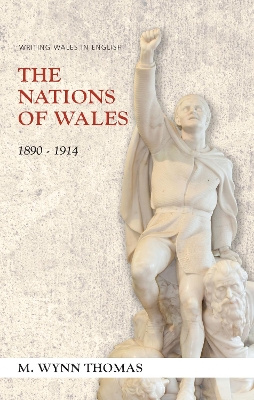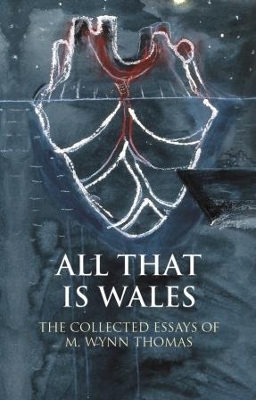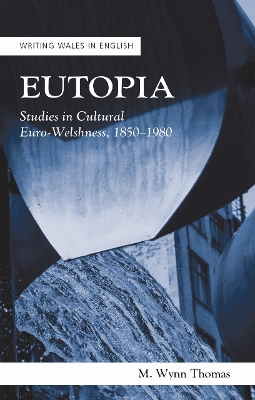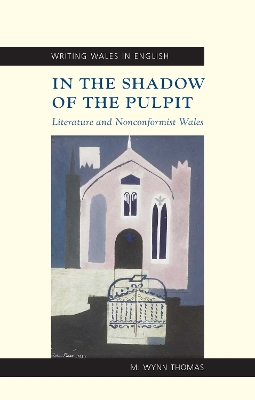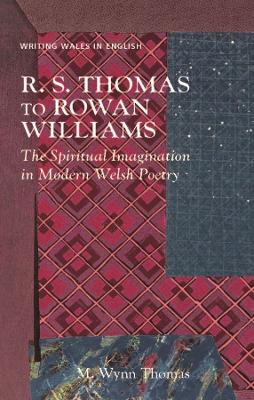Writing Wales in English
5 total works
Certain simple and stereotypical images of Wales strike an immediate chord with the public, both in Wales itself and beyond its borders. For much of the twentieth century, the country was thought of as ‘The Valleys’, a land of miners and choirs and rugby clubs. This image of a ‘Proletarian Wales’ (with its attendant Socialist politics) dominated popular imagination, just as the image of ‘Nonconformist Wales’ – a Wales of chapels and of a grimly puritan society – had gripped the imagination of the High Victorian era. But what of the Wales of the late Victorian and Edwardian decades? What image of Wales prevailed at that time of revolutionary social, economic, cultural, religious and political change? This book argues that several competing images of Welshness were put in circulation during that time, and proceeds to examine several of the most influential of these as they took the form of literary texts.
Wales may be small, but culturally it is richly varied. The aim in this collection of essays on a number of English-language authors from Wales is to offer a sample of the country’s internal diversity. To that end, the author’s examined range – from the exotic Lynette Roberts (Argentinean by birth, but of Welsh descent) and the English-born Peggy Ann Whistler who opted for new, Welsh identity as ‘Margiad Evans’, to Nigel Heseltine, whose bizarre stories of the antics of the decaying squierarchy of the Welsh border country remain largely unknown, and the Utah-based poet Leslie Norris, who brings out the bicultural character of Wales in his Welsh-English translations. The result is a portrait of Wales as a ‘micro-cosmopolitan country’, and the volume is prefaced with an autobiographical essay by one of the leading specialists in the field, authoritatively tracing the steady growth over recent decades of serious, informed and sustained study of what is a major achievement of Welsh culture.
The Brexit debates confirmed how Wales’s relationship to Europe has for too long been discussed exclusively, narrowly and suffocatingly in terms of its social, political and economic aspects. As a contrast, this volume sets out to explore the rich, inventive and exhilarating spectrum of pro-European sentiment evident from 1848 to 1980 in the writings of Welsh intellectuals and creative writers. It ranges from the era of O. M. Edwards, through the interwar period when both right wing (Saunders Lewis) and left wing (Cyril Cule) ideologies clashed, to the post-war age when major writers such as Emyr Humphreys and Raymond Williams became influential. This study clearly demonstrates that far from being insular and parochial, Welsh culture has long been hospitably internationalist. As the very title Eutopia concedes, there have of course been frequently utopian aspects to Wales’s dreams of Europe. However, while some may choose to dismiss them as examples of mere wishful thinking, others may fruitfully appreciate their aspirational and inspirational aspects.
Ranging from the nineteenth-century to the present, this book explores several central aspects of the ways in which the English-language poetry and fiction of Wales has responded to what was, for a crucial period of a century or so, the dominant culture of Wales: the culture of Welsh Nonconformity. In the introduction, the author reflects on why no sustained attempt has hitherto been made to investigate one of the formative cultural influences on modern 'Anglo-Welsh' literature, the Nonconformist inheritance. The importance of addressing this strange and significant cultural deficit is then explained, and a preliminary attempt made to capture something of the spirit of Welsh Nonconformity. The succeeding chapters address and seek to answer such questions as: What exactly did the Welsh chapels believe and do? Why have the English-language writers of Wales, from Caradoc Evans and Dylan Thomas to R.S. Thomas and the authors of today, been so fascinated by them? How accurate are the impressions we've been given of chapel life and chapel people in the English-language poetry and fiction of Wales? The answers offered may alter our views both of the Welsh Nonconformist past and of Welsh writing in English. One of the ideas advanced is that many of Wales' most important writers went to war with the preachers in their texts, and that their work is therefore the site of cultural struggle. Theirs was a war in words waged to determine who would have the last word on modern Welsh experience.
The great religious poetry of R. S. Thomas and the poetry of the former Archbishop of Canterbury Rowan Williams is rooted in a remarkable late-twentieth-century tradition of spiritual poetry in Wales that includes figures as different as Saunders Lewis and Vernon Watkins, Waldo Williams and Bobi Jones. This study examines this body of work in detail, demonstrating how the different theological outlooks of the poets was reflected in their choice of form, style and vocabulary. It thereby highlights a literary culture that was highly unusual in its rejection of the secularisation that prevailed during that period in the UK, Western Europe and the USA.
